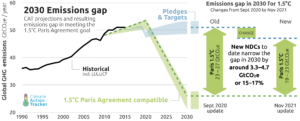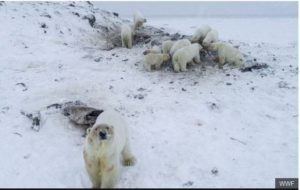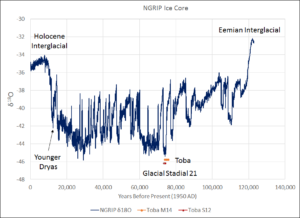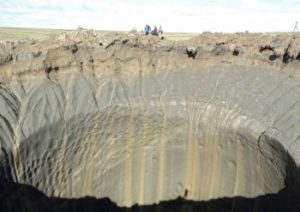Stacey Abrams, who ran for governor of Georgia, and Tom Steyer, who ran for president of the United States, are now trying to run me out of town.
Abrams, Steyer, and the leaders of 17 large environmental lobbies recently asked Facebook to ban a research group that I direct—the CO2 Coalition, made up of 55 climate scientists and energy economists.
The annual budgets of these lobbies total over half a billion dollars, and Steyer alone is worth $1.6 billion.
Their alarmist view of our supposedly impending environmental doom predominates in mainstream media, centering on the impact on the earth of emissions of carbon dioxide—a non-polluting, mild-warming gas, and an important source of plant and plankton food.
By contrast, the CO2 Coalition’s annual budget is half a million dollars. Like all scientists and economists who ask for any proof of the looming apocalypse, we are excluded from the mainstream-media discussion.
You might wonder: how did the Steyer-Abrams crowd even notice us, let alone conclude that we posed a threat to their enforced consensus, which calls for an end to the affordable, reliable energy that powers over 80 percent of the world?
The answer is found in the work of a Silicon Valley computer entrepreneur named Eric Michelman, who became fabulously wealthy creating a modification of the computer mouse.
For more than a decade now, Michelman has devoted his wealth to squelching media debate on climate change—a successful dry run for the cancel culture that we see engulfing many other issues today.
In 2016, Michelman was the founding and lead funder of a group called Climate Feedback, whose purpose is to “fact-check” and label as “false” any and all deviant thoughts about fossil-fueled climate catastrophe.
The group has been certified as an unbiased source on climate issues by the Poynter Institute for Media Studies, which was founded by the Tampa Bay Times and operates the left-leaning PolitiFact.
At some point, Facebook turned its censorship oversight over to the Poynter Institute’s International Fact-Checking Network.
That’s when our organization’s problems started.
In September 2019, a “false” label appeared on Facebook when the Washington Examiner posted an article I had written there with Dr. Patrick Michaels, our senior fellow and a former president of the American Association of State Climatologists.
The op-ed described the poor performance of climate models that had projected alarming increases in future temperatures. The “false” label triggered a wave of censorship from Facebook’s algorithms, blocking reposting and advertising.






